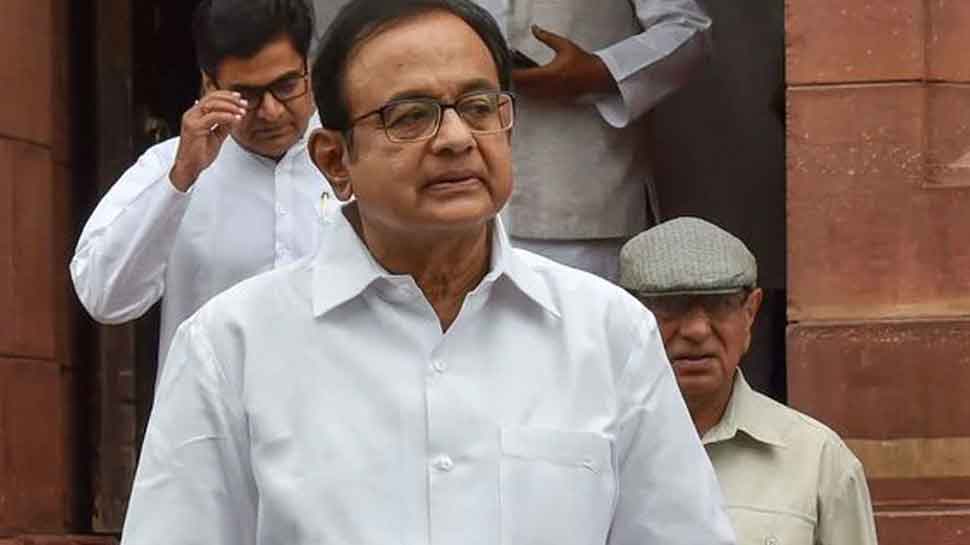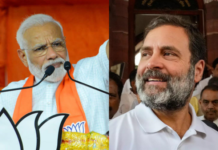NEW DELHI: In relief to Congress leader P Chidambaram, the Supreme Court Wednesday granted him bail in the INX Media money laundering case saying the claims by the ED that he can tamper with evidence cannot be accepted on “face value” as he is neither in “political power” nor holds any post in the government.
While granting bail to 74-year-old former finance minister who has been in custody for 105 days, the apex court restrained him from either giving “any press interviews” or “any public comment” in connection with the case regarding him or other co- accused.
Regarding Enforcement Directorate’s contention that one of the witnesses was not prepared to be confronted with him as they are from the same state, the top court said Chidambaram “cannot be held responsible” for this when there was no material to indicate that he or anyone on his behalf had “restrained or threatened” the witness.
While setting aside the November 15 verdict of the Delhi High Court denying him bail in the case, a bench headed by Justice R Banumathi said Chidambaram will have to make himself available for interrogation during further probe as and when required by the ED.
The bench, also comprising justices A S Bopanna and Hrishikesh Roy, said Chidambaram “shall not tamper with evidence or attempt to intimidate or influence the witnesses” and not leave the country without specific orders of trial court.
It said Chidambaram would be released on bail on executing bail bonds of Rs 2 lakh with two sureties of like amount.
“In the present situation the appellant is not in political power nor is he holding any post in the government of the day so as to be in a position to interfere. In that view such allegation cannot be accepted on its face value,” the bench said while dealing with ED’s submissions that possibility of tampering with evidence can not be ruled out.
The bench said though the economic offences have been said to be of grave nature, “the basic jurisprudence relating to bail remains the same inasmuch as the grant of bail is the rule and refusal is the exception so as to ensure that the accused has the opportunity of securing fair trial”.
The bench said that gravity of offence is required to be kept in view by the court while adjudicating bail plea but gravity have to be gathered from the facts and circumstances of each case.
“In that regard what is also to be kept in perspective is that even if the allegation is one of grave economic offence, it is not a rule that bail should be denied in every case since there is no such bar created in the relevant enactment passed by the legislature nor does the bail jurisprudence provides so,” the court said in its 37-page verdict.
The bench said it “disapprove” the manner in which conclusions were recorded in certain paragraphs of high court verdict in which “observations are reflected to be in the nature of finding relating to the alleged offence”.
On whether court should peruse documents placed before it in sealed cover by the agency while considering bail plea, the bench said it had already held that it would be open for court to peruse it to satisfy its conscience that investigation is proceeding in right lines.
“In that circumstance though it is held that it would be open for the court to peruse the documents, it would be against the concept of fair trial if in every case the prosecution presents documents in sealed cover and the findings on the same are recorded as if the offence is committed and the same is treated as having a bearing for denial or grant of bail,” the bench said.
It said it was “not very much inclined” to open sealed cover documents placed before it by ED but as high court had seen it and arrived at certain conclusion, it had become “imperative” for the top court to peruse the same.
It said that finding recorded by high court based on the material placed before it in sealed cover was not justified.
The bench said even if statements on record and materials gathered are taken note of, “the complicity of the appellant (Chidambaram) will have to be established in the trial and if convicted, the appellant will undergo sentence.”
It also noticed that one of the co- accused has been granted bail by high court while the other co- accused is enjoying interim protection from arrest.
“In that circumstance, the availability of the appellant (Chidambaram) for further investigation, interrogation and facing trial is not jeopardized and he is already held to be not a ‘flight risk’ and there is no possibility of tampering the evidence or influencing/intimidating the witnesses,” it said.
The bench said observations touching upon merits either in high court order or in the apex court’s verdict should not be construed as an opinion expressed on merits and all contentions are left open to be considered during course of trial.
Chidambaram has been in custody since August 21 when he was arrested by the Central Bureau of Investigation (CBI) in INX Media corruption case.
On October 16, the ED arrested him in the separate money-laundering case.
Six days later, on October 22, the apex court had granted him bail in the case lodged by the CBI.
CBI had registered its case on May 15, 2017, alleging irregularities in a Foreign Investment Promotion Board clearance granted to INX Media group for receiving overseas funds of Rs 305 crore in 2007 during Chidambaram’s tenure as finance minister.
Thereafter, ED had lodged a money laundering case. PTI







